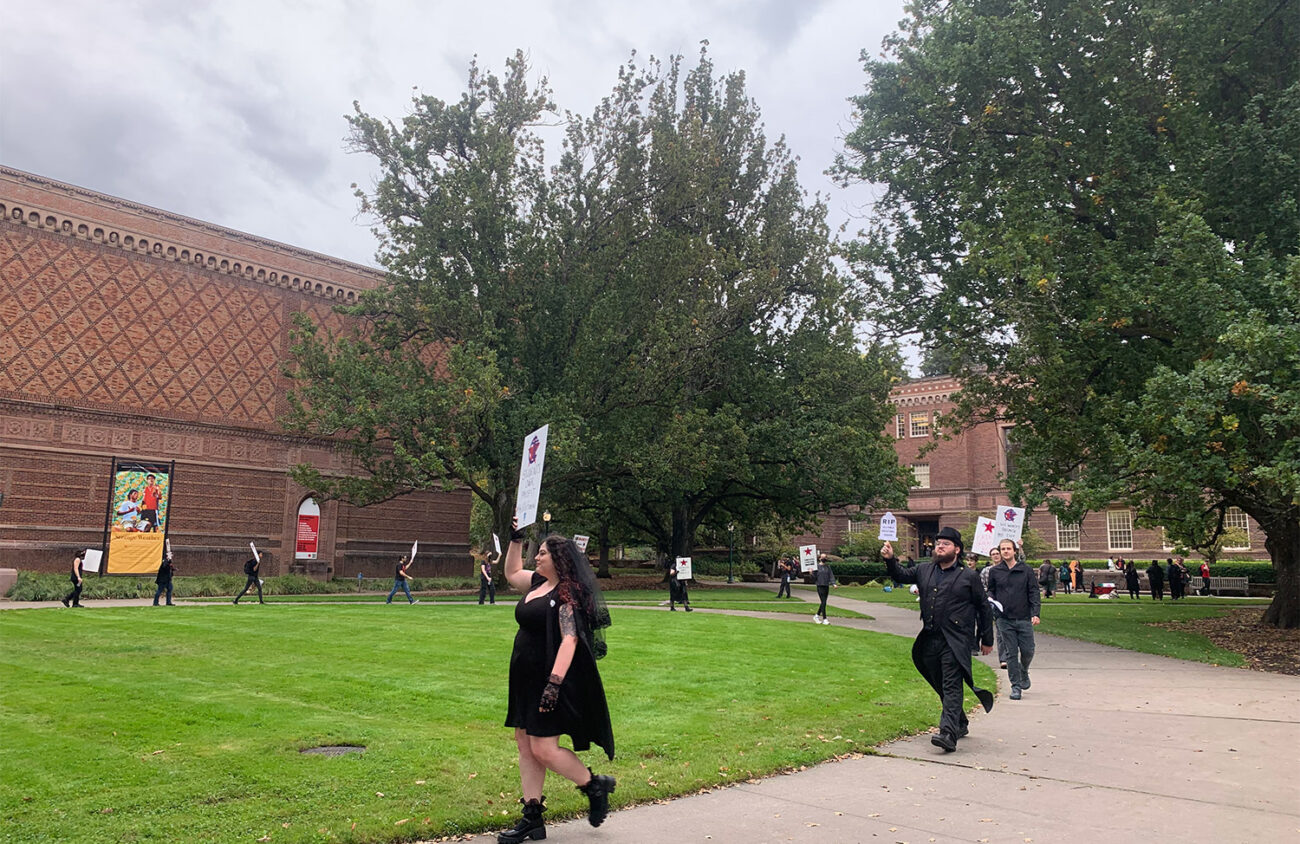The University of Oregon’s Graduate Teaching Fellows Federation (GTFF) has officially declared impasse as of Thursday Oct. 19. After 15 days of mediation, GTFF stated in a press release that “the UO had more than enough time to respond to what we’re asking.”
The GTFF represents grad student employees (GEs) at UO who teach or assist in teaching classes, conduct research or other employment while enrolled in a graduate program.
Now that the 1,400 person union has declared an impasse, the university and union both have seven days to draw up their “last best offer.” Once offers are given to a state mediator, the two parties enter a cooling off period of 30 days to read over the proposals and decide whether or not to agree to a contract.
GTFF President Leslie Selcer says, “Employment costs have risen in every industry, including ours, and it’s time for UO to take responsibility for those costs.”
GTFF’s latest proposal as of Oct. 16 states that the union wants a 21 percent increase in first-year minimum GE salaries, a 12 percent increase for second-year salaries and an eight percent increase for third-year salaries. The UO has offered GTFF an eight percent increase for first-year minimum salaries and a 3.75 percent increase for second and third year salaries.
Selcer says, “Eight percent seems like a lot but you have to remember GEs aren’t paid a lot. For the minimum GE employee that eight percent is only $150.”
Eugene Weekly reached out to the UO for comment and received a similar response to a previous story on the union. Director of Issues Management Angela Seydel writes, “The university remains focused on reaching an agreement that provides a competitive compensation package to attract and retain top talent and positions our graduate programs for long-term success.”
On Friday, Oct. 20, the GTFF and the UO Student Workers Union held a “Bargaining for a better campus rally” at Johnson Hall to announce the impasse. They also celebrated the UOSWU’s historic election to officially establish the undergraduate union. If more than 50 percent of student workers vote “yes” to create a union then UOSWU will be the largest undergraduate union in the country. The election ends Oct. 24.
Carolyn Roderique is an undergraduate student worker who supports GTFF members in doing “whatever it takes” to get the contract they deserve. She says that “a win for one workplace is a win for every workplace.”
While Selcer reiterates that GTFF wants to reach an agreement with the UO, she says the union is prepared to strike. Selcer says that GTFF has plans to speak with elected officials and other members of the public about what the impacts of a GE strike at the UO would be.
She says, “We know that it’s not just the UO that would be impacted by a strike of this size, so we want to inform the public.”
In addition to warning the community, GTFF also has a fund set up to help workers pay their bills if they do decide to strike.
“We are just standing up to a really powerful institution that is run like a corporation and telling them that they exploit their workers like this,” Selcer says.
